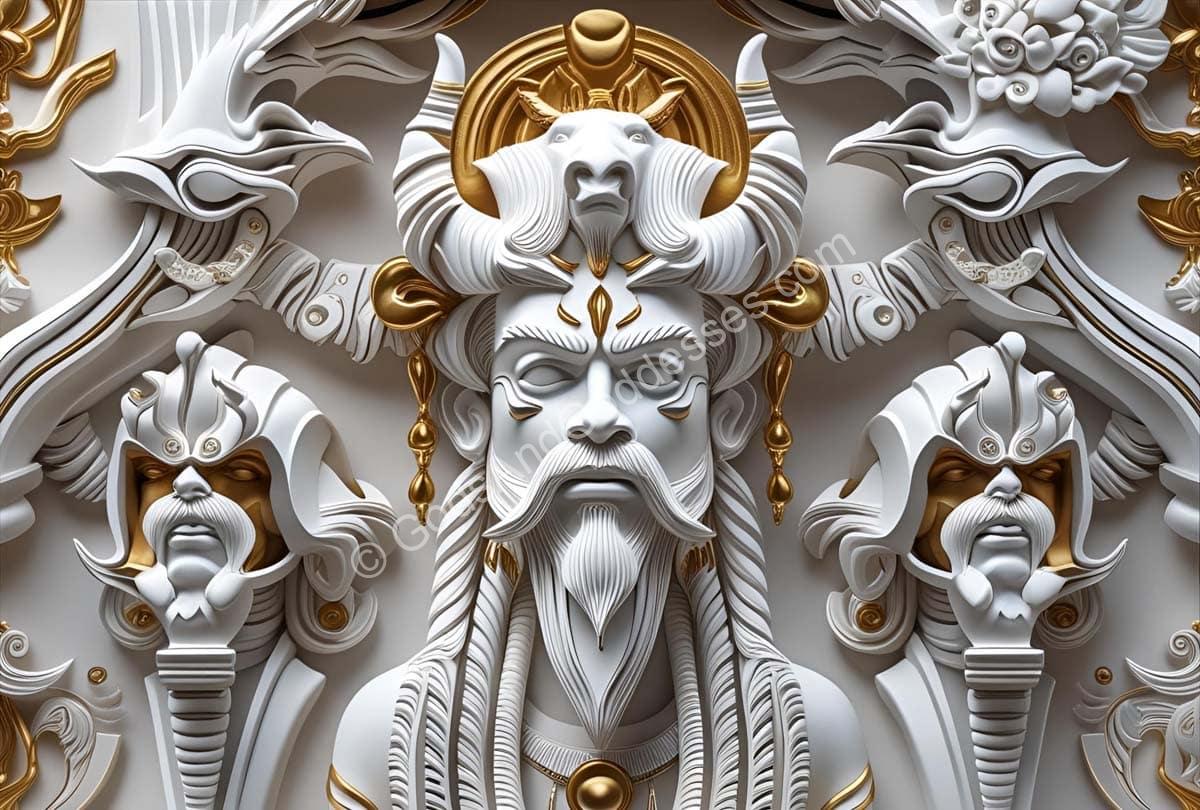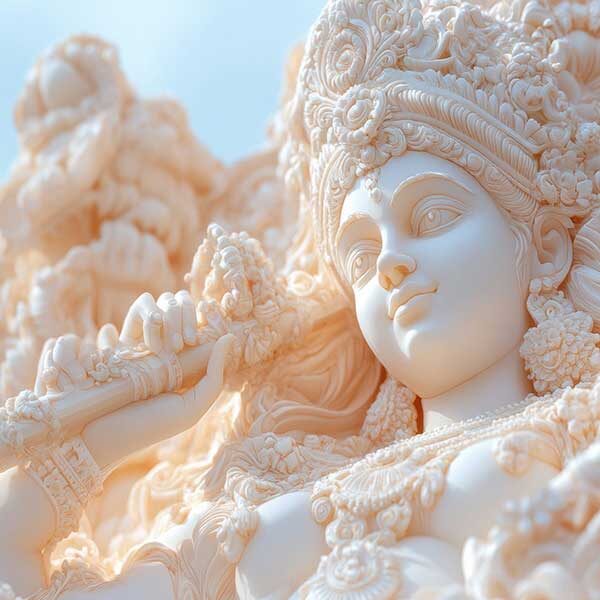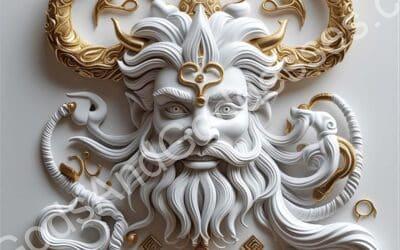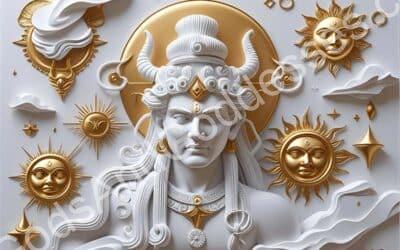Introduction: Why Underworld Gods Matter
Every mythology has gods who walk in the shadows; these underworld gods preside over death, the afterlife, and the mysteries of what lies beyond the grave. They are not only feared as rulers of the dead but revered as guardians of balance—ensuring that life, death, and rebirth remain in harmony.
At GodsAndGoddesses.com, we explore Types of Gods, God Symbols, and Mythological Themes to uncover how these deities shaped cultures. From Hades in Greek mythology to Osiris in Egypt, and Hel in Norse lore, underworld gods remind humanity that death is not an ending, but a transition.
“The underworld is not only a realm of endings—it is the womb of beginnings.”
Also see: Mythology, Gods, and Goddesses.
Key Takeaways About Underworld Gods
-
Underworld gods exist in nearly every culture, ruling death and the afterlife.
-
They are not always evil but serve as guardians of justice and balance.
-
Famous figures include Hades (Greek), Osiris (Egyptian), and Hel (Norse).
-
They symbolize cycles of death, rebirth, and transformation.
-
Their myths reveal cultural attitudes toward mortality and the soul’s destiny.
Greek and Roman Underworld Gods
-
Hades – Greek god of the dead and ruler of the underworld. Though often feared, he was not evil, but a stern guardian ensuring the dead stayed in their realm.
-
Persephone – Queen of the underworld, whose seasonal return to earth symbolized renewal and the cycle of life and death.
-
Pluto – Roman equivalent of Hades, whose name means “wealth,” reflecting the riches of the earth and the underworld’s treasures.
External resource: World History Encyclopedia – Hades
Egyptian Underworld Gods
In Egyptian mythology, the afterlife was central to religion.
-
Osiris – God of the underworld, resurrection, and judgment. He offered hope of eternal life.
-
Anubis – Jackal-headed god of embalming, who guided souls through the weighing of the heart.
-
Ma’at – Goddess of truth and cosmic order, ensuring balance during judgment.
See also: Egyptian Gods
Norse Underworld Gods
-
Hel – Daughter of Loki, ruler of the realm of the dead also called Hel. She embodied both decay and inevitability, ruling over those who died outside of battle.
-
Odin – Though not solely an underworld god, Odin guided fallen warriors to Valhalla, a heavenly afterlife for the honored dead.
External resource: Britannica – Hel
Other Cultures and Their Underworld Deities
-
Yama (Hindu and Buddhist traditions) – Lord of death and judge of souls.
-
Mictlantecuhtli (Aztec) – God of death who ruled Mictlan, the Aztec underworld.
-
Ereshkigal (Mesopotamian) – Queen of the Great Below, embodying the inevitability of death.
-
Hine-nui-te-pō (Māori) – Goddess of night and death, guiding spirits in Polynesian mythology.
Symbolism of Underworld Gods
Underworld gods represent more than death—they embody cycles, justice, and hidden truths:
-
Death and Rebirth – Every ending contains the seed of a new beginning.
-
Judgment and Balance – They weigh souls, rewarding virtue and punishing evil.
-
The Unknown – They embody the mysteries of mortality and the afterlife.
-
Guardianship – Protecting boundaries between worlds.
“To know the underworld gods is to understand that death is part of life’s story.”
Underworld Gods in Modern Culture
-
Literature and Film – From Hades in Percy Jackson to cinematic depictions of Osiris and Anubis.
-
Religion and Spirituality – Modern pagans and reconstructionists honor underworld gods for guidance, endings, and transitions.
-
Symbols and Rituals – Skulls, keys, and thresholds continue to represent underworld power.
External resource: World History Encyclopedia – Afterlife
Frequently Asked Questions
Are underworld gods evil?
Not necessarily. In most traditions, they maintain balance rather than inflict evil.
Why are underworld gods feared?
They rule death, the unknown, and fate—universal human fears.
Which is the most famous underworld god?
Hades (Greek), Osiris (Egyptian), and Hel (Norse) are among the most well-known.
Do underworld gods symbolize only death?
No. They symbolize renewal, justice, and cosmic balance as well.
Conclusion
Underworld gods are keepers of life’s greatest mystery: what happens after death. They guide, judge, and protect, ensuring that souls follow their destined path. In their hands, death is not an end but a doorway to transformation and rebirth.
From Hades to Osiris, Hel to Yama, the gods of the underworld reveal humanity’s deep reverence for mortality and eternal cycles.
Explore more:
“The underworld teaches us that shadows are not the absence of light, but its companion.”
- Odin God Story - August 24, 2025
- The Story of Ra: Egyptian Sun God and Creator - August 24, 2025
- Kraken: Mythological Sea Monster of the Deep - August 24, 2025




